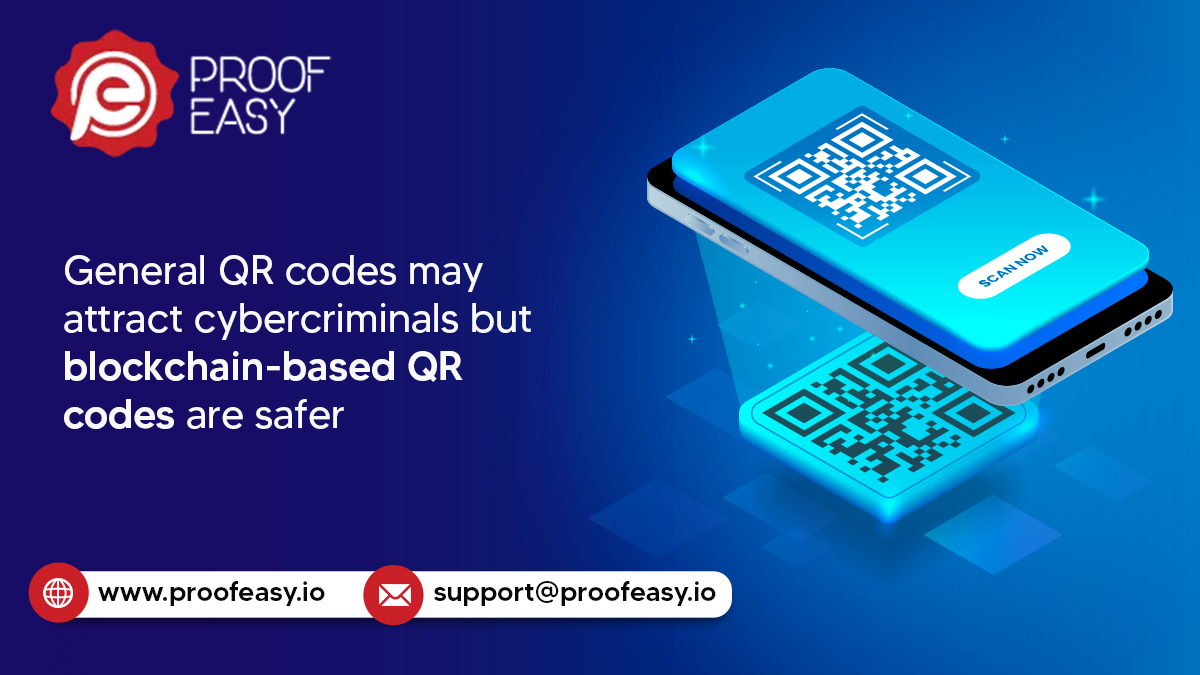QR codes facilitate networking and sharing. These codes are quite more than the digital barcodes which also improve SMO as well as SEO. For decades, the usage of QR codes has increased. Both organizations and consumers are implementing QR code solutions for benefits. Few of the challenges are faced by QR codes. Blockchain technology can be used for offering security. So, it is highly recommended to use blockchain-secure QR codes.
What are QR codes?
QR codes are barcodes in matrix style which are printed on several media from billboards to food items.QR codes serve as the best intermediary communication which uses the data from printed medium to fetch data in the digital medium. In short, QR codes help in bridging offline and online. Most marketers love the simple and easy usage of QR codes as they are the most convenient process to boost campaigns.
Many companies adopting QR codes:
Big tech companies have started implementing blockchain-based QR codes. Few other companies are finding the QR codes an effective solution in retail stores, supply chain management and many other uses. Quick response codes are becoming beneficial for augmented reality. Rather than having consumers visit any web address manually, the QR codes can eliminate every potential typo by redirecting users to the website directly. QR codes are also used for document security. Many educational institutes have begun using QR codes to guarantee that receivers can identify whether the degrees or certificates are fake or not. QR codes include credentials and data of degree holders and keep them safe. Now the point comes – how secure are these QR codes?
Are QR codes safe?
QR codes continue to grow in huge popularity due to COVID-19. Cybercriminals are well-aware and looking forward to attacking users with their digital barcodes. Every good thing comes with risks too. In the same way, efficiency and easy usage of QR codes also come with security risks. The QR code technology has no security issues and can not be hacked but the security risks which people associate with quick response codes are phishing, hacking, and malware. Usually, they do not source out from the QR code technology but definitely from the last destination of every code. Third parties can hack the web pages and connect with some malicious software. They can steal your valuable data.
How can third parties exploit QR codes?
a) They can embed or print flyers with some malicious QR codes and then distribute them in public places. Those QR codes can redirect consumers to scan unreliable landing pages and force them to download malicious software which can steal all private data.
b) Third parties can also print stickers consisting of hostile QR codes and paste them on legitimate ones.
So the major risk of “hacks” circles around the link’s nature. The main risk of QR codes is – they are machine-readable only, so users can not identify if some manipulation with the codes has been there or not without scanning them.
How can you increase QR code security?
Now the question comes about our data and identity. How to prevent identity theft? The answer is blockchain technology. If companies and users can try to make the most of this technology then security can be added. Usage of blockchain-based QR codes can land you on the safe side. For the general QR codes, the risk stays but in the case of secure QR codes, there are no security flaws. You can increase QR code security by adding blockchain technology to it.
A snippet into blockchain-based QR codes:
Blockchain-based QR codes are safe to use but in many cases, QR codes add extra security. The websites like online banking sites use blockchain-based QR codes for authentication. The main differentiation of blockchain-based QR codes from normal ones is immutability and security. While generating QR codes, a unique hash value is put into the QR code, when the user scans the QR code for accessing data, the system cross-checks the hash value present in QR codes and compares it with the blockchain’s hash value. It makes the complete system immutable and incorruptible. The “hash” technology makes it impossible to get hacked. Unique hash values are just like fingerprints or DNAs. Users can never find two “hash” values similar. So you can understand that blockchain-based QR codes are more secure than normal ones. With the help of an e certificate generator, you can generate e-certificates and secure them through secure QR codes.
Normal QR codes are safe but modification or tampering is not that tough for hackers and security stands at risk. So, if you use blockchain-based QR codes, it can be the best solution to secure data or documents which no one can change due to the presence of a “hash” value. We hope that in future more and more companies will embrace blockchain-secure QR codes.

